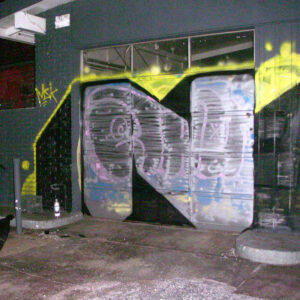Standardisation silently governs our economic environment. This system establishes technical rules to govern products and services. Its legal status, which ranges from voluntary to mandatory, often baffles operators. This essential guide sheds light on its principles, players and legal implications.
Fundamental principles of standardisation
Standardisation defines technical reference documents. These texts establish characteristics, test methods or good practice in various sectors.
Standards are fundamentally different from traditional legal rules. They are drawn up by consensus between interested parties. Manufacturers, users, laboratories and public authorities participate in their creation.
Cardinal principle: standards are voluntary. Article 17 of decree no. 2009-697 clearly states this. In theory, economic operators can ignore these texts without direct sanction.
However, this freedom remains relative. Mechanisms often transform standards into real obligations. A ministerial decree may make them directly mandatory. Contracts or public procurement contracts may refer to them, creating an indirect obligation.
Article 1386-10 of the French Civil Code states that a manufacturer "may be liable for a defect even though the product was manufactured in compliance with existing standards". This provision confirms the limited legal scope of standards.
To find out more about this voluntary/compulsory duality, see our detailed analysis on voluntary and mandatory application of standards in french law.
Key players in the French system
The French standardisation system brings together private and public players in an original organisation.
The Association française de normalisation (AFNOR) is the central hub. This 1901 law association is recognised as being of public utility and fulfils a mission of general interest. It guides and coordinates the development of national standards. It also represents France in international and European bodies.
Sector-specific standards bodies complete the system. Approved by the Minister for Industry, they draw up draft standards in their respective fields. This decentralisation ensures that the realities of each sector are better taken into account.
The State retains a significant role via the Interministerial Delegate for Standards. Appointed by decree, he defines French standards policy. He sits as a government commissioner on AFNOR, with the right to object to certain decisions.
The development of standards follows a structured process. The standardisation committees bring together the interested parties. A public enquiry is held to gather comments before approval. The approved standard then bears the reference NF followed by an identification number.
For a full analysis of the players and procedures, see our article on the french standardisation system.
Legal implications for companies
Standardisation has tangible legal effects for companies.
Certification attests to the conformity of a product or service to a standard. It takes the form of marks such as NF in France or CE at European level. These signs reassure customers and business partners.
The NF mark, issued by AFNOR Certification, applies to products or services that comply with French standards and additional specifications. The CE mark, a regulatory requirement for certain products, certifies their compliance with essential European requirements.
These approaches involve rigorous procedures. Initial assessment, periodic audits and spot checks ensure that compliance is maintained. Our article on product certification and marking details these mechanisms.
Legal liability is the crucial issue. Compliance with standards influences the assessment of professional obligations, but does not automatically exonerate.
In civil liability, compliance with standards creates a favourable but rebuttable presumption. The courts sometimes consider that the professional should have gone beyond the minimum standard requirements.
In terms of criminal liability, failure to comply with the standards may constitute recklessness or negligence. On the other hand, compliance with them can be used as a defence, without any absolute guarantee.
Our analysis of legal liability linked to technical standards takes a closer look at these key issues.
The legal framework for standardisation is constantly evolving. National reforms, European directives and international agreements regularly modify the rules. Active monitoring is essential for the companies concerned.
Faced with these complex issues, legal support becomes crucial. Ourstandardisation lawyers guides you through the process and defends your interests.
If you are experiencing difficulties with technical standards or want to secure your business, contact our firm. Our expert lawyers will suggest a strategy tailored to your specific situation.
Frequently asked questions
What is an approved standard?
An approved standard is a technical document that has received official approval from AFNOR after a procedure including a public enquiry. It bears the prefix NF (Norme Française) followed by an identification number.
Can a standard be made mandatory?
Yes, a standard can be made mandatory by an order signed by the minister for industry and the minister(s) concerned, as provided for in article 17 of decree no. 2009-697 of 16 June 2009.
Does compliance with a standard protect against liability?
No, compliance with standards is not an absolute shield against legal liability, as confirmed by article 1386-10 of the Civil Code, which states that "the producer may be liable for a defect even though the product was manufactured in compliance with existing standards".
What is the difference between a French standard and a European standard?
A French standard (NF) is drawn up at national level by AFNOR, while a European standard (EN) is developed by the European bodies CEN or CENELEC and must be transposed into the national catalogues of all Member States.
How do I know if a standard applies to my business?
To determine whether a standard applies to your activity, consult the regulatory texts for your sector, check the normative references in your contracts and markets, or contact AFNOR, which offers a service for identifying applicable standards by field of activity.
Are the standards accessible free of charge?
No, voluntary standards have to be paid for and are marketed by AFNOR, whereas mandatory standards can be consulted free of charge on the AFNOR website and, since the 2021 decree, can be downloaded and printed free of charge.
What does product or service certification involve?
Certification attests that a product or service complies with the characteristics described in a set of standards and involves initial and periodic checks by an independent certification body, which generally allows the use of a collective mark such as NF or CE.
What is the difference between standardisation and certification?
Standardisation involves drawing up technical documents defining characteristics and good practices, while certification is the process that attests that a product, service or system complies with these standards or reference systems.
How can I participate in the development of a standard?
To take part in the development of a standard, you need to join a standards committee at AFNOR or the relevant sectoral standards office, bearing in mind that these committees are open to all interested parties in accordance with article 12 of the 2009 decree.
Can an approved standard be challenged?
An approved standard can be contested with the interministerial standards delegate during the approval phase, but once it has been adopted, only indirect action is possible, in particular by challenging the decree making it mandatory before the administrative judge.
What are the legal risks of not complying with a voluntary standard?
Failure to comply with a voluntary standard may constitute a civil offence for which the company may be held liable in the event of damage, be considered an act of unfair competition, or constitute recklessness that may be punishable under criminal law in the event of an accident.
Are the NF mark and the CE mark equivalent?
No, the NF mark is a voluntary quality certification issued by AFNOR Certification, while the CE mark is a compulsory declaration of conformity with the essential European requirements for the free movement of products within the European Union.




